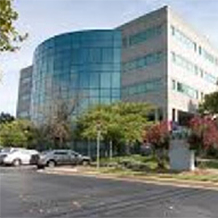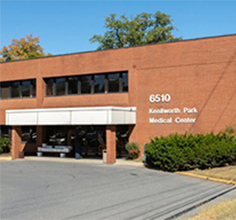
Headaches are a common pain that most individuals have encountered at some point in their lives. They vary in intensity, duration, and underlying causes. Broadly classified, headaches can be categorized into two main types: primary headaches and secondary headaches. While both types share the commonality of being a pain in the noggin, they differ significantly in terms of origin, symptoms, and treatment approaches. In this brief article brought to you by Southern Maryland Medical Group, we dive into the characteristics of each type of headache.
If you are dealing with chronic or severe headaches, then consider visiting a primary care physician. The licensed primary care doctors at Southern Maryland Medical Group are happy to schedule a convenient appointment or arrange a walk-in visit for as soon as possible.
Primary headaches make up the majority of headache cases and are typically not indicative of an underlying medical condition. They are primarily caused by the overactivity of pain-sensitive structures in the head, such as blood vessels, muscles, and nerves. Migraines, tension-type headaches, and cluster headaches are the most prevalent forms of primary headaches.
Migraine headaches are known for their intense, throbbing pain usually localized to one side of the head. Accompanied by other symptoms like nausea, vomiting, and sensitivity to light and sound, migraines can significantly disrupt daily life. Genetic factors, environmental triggers (such as certain foods, stress, and hormonal changes), and abnormal brain activity contribute to the development of migraines. Treatments often involve a combination of lifestyle modifications, pain-relief medications, and preventative measures tailored to individual triggers.
Tension-type headaches, meanwhile, manifest as a dull, persistent ache often described as a tight band around the head. Stress, poor posture, lack of sleep, and prolonged screen time are common causes of these headaches. Unlike migraines, tension-type headaches rarely cause nausea or vomiting. Management strategies include stress reduction techniques, physical therapy, and over-the-counter pain relievers.
Finally, cluster headaches are characterized by their excruciating, sharp pain often concentrated around one eye. These headaches occur in clusters, with each bout lasting from weeks to months and then subsiding for extended periods. The exact cause of cluster headaches remains elusive, but they are believed to be related to abnormalities in the hypothalamus. Oxygen therapy, specific medications, and lifestyle adjustments are common treatments to alleviate the intensity and frequency of cluster headaches.
Secondary headaches, unlike primary headaches, are symptoms of an underlying medical condition. These conditions can range from infections and head injuries to more severe problems like brain tumors or vascular disorders. Identifying the root cause of secondary headaches is crucial for effective treatment.
The primary strategy for treating secondary headaches is to address the underlying condition. This involves a comprehensive medical evaluation, diagnostic tests, and appropriate treatment protocols. In cases of head trauma or infections, managing the primary condition is essential for relieving headache symptoms. For more complex conditions like brain tumors, treatment options might include surgery, radiation therapy, or chemotherapy.
Understanding the distinction between primary and secondary headaches is essential in determining the appropriate course of action for effective relief. With an informed understanding of these two distinct headache types, individuals can better navigate the often painful pathways to relief and recovery. Still, you are advised to seek a reliable primary care physician if you experience chronic or severe headaches. Residents in the area are welcomed to visit Southern Maryland Medical Group to thoroughly investigate the root cause.
Southern Maryland Medical Group has 3 convenient locations to provide professional medical care services in the Southern Maryland area. Call or schedule an appointment with one of our locations to get medical care help.

5801 Allentown Road, Suite 400 Camp Spring, MD 20746
Phone: 301-868- 0150
Billing Inquiries: 301-552-1270
Fax: 301-868-0243

7500 Greenway Center, Dr #1200 Greenbelt, MD 20770
Phone: 301-486-7580
Billing Inquiries: 301-552-1270
Fax: 301-486-7581

6510 Kenilworth Ave, Ste 1400, Riverdale MD 20737
Phone: 301-618-0771
Billing Inquiries: 301-552-1270
Fax: 301-618-0772